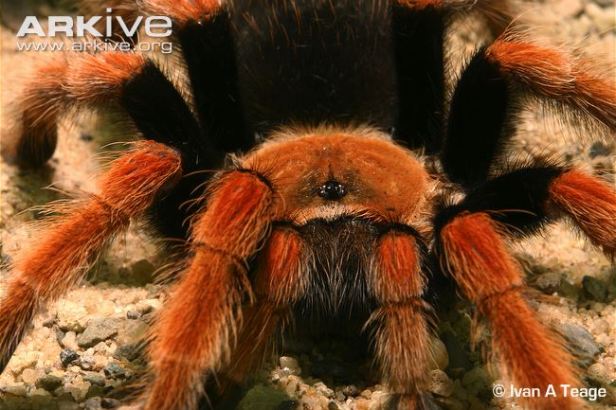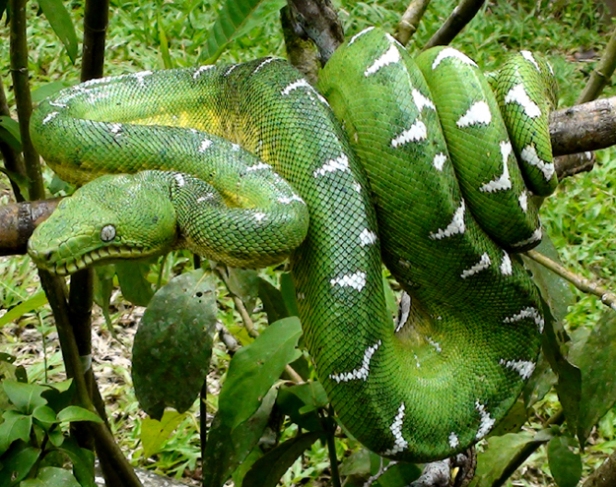Last week I heard perhaps the most incredible story I have ever heard in my life. Despite having travelled to over 35 countries in the world, lived for 11 years in 10 different prisons in two countries and conversed with thousands of people, I have never heard such an amazing story.
This week I am going to share it with you…
“I was born in the Amazon rainforest on the border between Brazil and Suriname,” Aisha begins.
“My tribe of 50 people lived in the jungle two hours drive from the nearest town. I lived there from birth until I was an adult.”
I ask Aisha if I can take notes as she speaks. She nods her head. Now in her 40s she speaks in a matter of fact way like anyone would talk about their life.
“We used to wake up at 4 o’clock in the morning just as the sun was beginning to rise. We would lick the dew from the leaves and clean our faces and bodies with it.”
“We never wore clothes, as is the custom of all the tribal indigenous peoples of the forest.”
Aisha’s dark skin gives the initial impression that she might be from southern India, but her coloured eyes and light eyelashes show that she is from somewhere far from Asia.
“There were baboons and gorillas in the forest, wild cats, all types of snakes and scorpions. I used to kill snakes but I was scared of the coconut tree spiders that were this high.” Aisha raises her hand twelve inches above the ground.
She asks me if I have something with which to access the internet.
I take out an iPad. “Search Google for giant spider South America,” she asks me. “It was hairy, with red and black legs. It would stand up tall and puff out its legs.” I bring up a list of photographs of giant South American spiders and we scroll through it.
“That one! That’s it. Ooo…” Aisha shivers her hands to describe how afraid she was of these tarantulas.

“There were birds, more beautiful than anyone has ever seen, or bright yellow, green and pink colours. They would sing the most beautiful songs at sunrise. Sometimes we would kill the large birds with a catapult to eat them.”
“My sister and I used to spend most of our time in the trees. We would eat there, play there, make swings from the branches and take turns pushing each other.”
“Once I was in a tree and I saw this pair of green eyes staring straight into my eyes. I slowly backed off then jumped off the tree and ran. It was a large tree snake.”

“Another time I was standing on the ground when a black snake fell out of a tree in front of me. It coiled up and hooded its head as if it was ready to strike me. I stood still until it slithered away.”
“The toads were one foot tall but I was afraid of the butterflies.” Aisha puts her palms about 15 inches apart. “They were this big and they had a round black design on each wing that looked like large eyes. I would run whenever I would see one of them,” she giggles.
“My dad used to burn a fire every day to make coal that we could use to cook with. At 3am every night my sister and I had to cross the chest-high swamp to put out the fire. Once an alligator attacked my sister, but she managed to fight it off.”
“People from our tribe would disappear and we would know that they had been killed by an animal from the vultures that would fly to the area to feed on their bodies. I had many relatives who died; I don’t know what happened to them or their bodies.”
I ask Aisha what she would eat in the jungle.
“We used to hunt and eat monkeys, small wild pigs [tapirs] and other animals. There were wonderful fruits and berries of many colours but I don’t know their names in English. I remember mangoes and I used to love the soft young coconuts.”

“I used to climb up trees and suck honey from the hives of the wild bees.” I ask Aisha whether she would ever get stung by the bees.”Yes, but we were used to it,” she replies “Their stings would not bother us.”
“Whenever anyone of us would get hurt, our tribal elders would apply the pastes of herbs and trees onto our skins as medicine.”
I ask Aisha what she believed in, in the forest.
“Nothing,” she replies. “We believed in tribal religions. We would follow our elders and fathers.”
Aisha tells me that she would communicate with others in a tribal language that is spoken but not written. She does not know the name of the language.
I ask Aisha what is her best memory of life in the jungle.
“Being along, being free, wandering in the jungle without a care in the world,” she smiles and looks away as she visualises that memory.
Aisha then tells me about a dream that she saw in the jungle.
“I dreamt that I was in a city with roads and buildings and many people. In my dream I was told that this was a place called ‘Holland'”
“We never had televisions, newspapers or phones. I had no idea what a city looked like, let alone what or where Holland was.”
“One day I came to Holland.”
I ask Aisha why and how she came to Holland. “I don’t know.” I ask her who she came with. “I was alone, I think there was a plane.” She tries to remember but is unable to do so.
I ask her where she lived once she arrived in Holland. “I remember living in a church.”
I get the impression that something really traumatic happened to Aisha as a result of which she came to Holland. Something so traumatic that she has blocked it out in her memory and genuinely cannot remember.
I wonder whether she was kidnapped and brought to Holland by Dutch missionaries as a slave, or in order to “civilise” her?
Aisha arrived in Holland and spent time living with different families. In time she learned that some of her five siblings were there too.
“I learned Dutch and I travelled the world. I tried many different religions: Christianity, Hinduism, Buddhism…”
I ask Aisha which place she has visited in the world that reminds her most of her home. “Tanzania,” she replies. “The forest there reminds me of the forest I grew up in.”
I ask Aisha about any significant dreams from her life that she can remember.
“When I was visiting New York I had a dream. I saw that there was a tall tree with many branches. The tree was on fire and it fell down. After it fell down there were many problems in the world. I saw this dream twice, one week apart.”
“A few days later, the Twin Towers were attacked on 9/11 and fell down, just as the dream I had seen.”
But more significant than the tree dream was this one…
“One day I saw a dream. I dreamt that there was a black cube structure, many people were going round and round it while others were kneeling towards it.”
“I remember feeling a little overwhelmed that it was such a big place and there were so many people.”
“In the 1990s I left Holland and moved to London. One day in London I was passing by a small building in the area that I was living. There were some women going in there so I followed them. They went into a hall and began to stand and bow and kneel. I followed them.”
“When everyone put their heads on the ground on prostration I followed them but then I became scared,” she smiles. “It was so quiet so I put up my head and began to look around, wondering why everyone was so still and silent.”
“Then I quickly put my head back on the ground and continued following the women. I later learned that this was a mosque.”
I ask Aisha whether she was wearing the hijab headscarf that she now wears. She shakes her head to say no. I ask her if any of the other women spoke to her to ask her who she was and what she was doing there. She shakes her head to say no.
I ask Aisha why she went into that building and followed the women.
“I don’t know,” she replies. “Something inside me was telling me to go inside that building and follow those women.”
“It was many years before I again plucked up the courage to return to that mosque. I was afraid what people would think because I didn’t know how to behave. But the women there were very friendly. They welcomed me and began to teach me about Islam.”
“I began to attend an Arabic class in another mosque in the area, but I was struggling with the letters because I had never written anything before.”
“One day I left the mosque in frustration and, standing outside a grocery shop next door, I prayed to God, ‘O Allah! Find me an Arabic teacher who can teach me one to one.'”
“As soon as I said this prayer this woman in a hijab came up to me and said salam [the Islamic greeting of peace]. I said salam back to her then I asked her if she could teach me Arabic! I don’t know why I asked her this, but I just did.”
“It turned out that she was an Iraqi woman who happened to be an Arabic teacher. She welcomed me into her house and began to teach me how to read the Quran. She taught me tajweed [how to recite the Quran with proper pronunciation]. In time she became my best friend.”
“A few years ago, she took me with her to visit the holy cities of Makkah and Madinah. In Makkah I saw the same black cube structure that I had seen in a dream many years earlier. And so my dream came true.”
Aisha tells me that her Iraqi friend told her all about me and how I went to prison. “I used to pray for you every day,” she says. “I know how important open space is to human beings and to be deprived of your freedom is one of the worst things that can happen to a person.”
Aisha asks me about my experience and I briefly tell her a bit about what prison and solitary confinement is, before bringing the conversation back to her.
Today, Aisha has been a Muslim for over 10 years. She travels the world for charity work. She is a private person and does not really open up to people. She has a few close friends whom she socialises with but she avoids speaking in gatherings.
She receives a lot of attention when people find out that she is perhaps the world’s only Amazonian Muslim. I ask Aisha whether she has ever met, or heard of, any other Muslim from the indigenous Amazon tribes.
“No. It is impossible. They don’t mix with anyone. They don’t leave the forest and no-one comes to them.”
I ask her if she has ever returned to her forest since leaving it over 30 years ago. She shakes her head to say no. She has been to Suriname but has not yet been to her forest.
“But one day I am going to go back there.”
I ask Aisha what Islam means to her today.
“Islam is everything to me. Since becoming Muslim I feel that I now have a purpose in life. Everything in Islam is easy, nothing is difficult. I feel happy in my heart and I am at peace.”
I went with my mother to drop Aisha to her house. As she disappeared behind the door of the terraced house of a normal London street, I turned to my mother and asked,
“Wasn’t that the most incredible story?”
Read the story about why I went to prison in the interview I gave to The Guardian newspaper here.
Enter your email address in the form below to receive a notification every time I update my blog.



Assalamualykum, amazing story brother Babar…………
LikeLiked by 2 people
Subhan Allah
LikeLiked by 2 people
Im confused with the way she recalls time…she said they used to wake up at 4am but she used to put out the fire every night at 3am…this is inconsistent but it’s also weirdly precise for a someone who wouldnt have followed clocks. Babar you said you got the impression that something traumatic happened to her because she couldnt remember how she ended up at Holland, do youthink trauma can create fictional memories in a person’s mind? Could it be the defence mechanism of the mind against horrors experienced? Im curious…what happened to the rest of her siblings who were also with her in Holland? She said she learnt Dutch, travelled the world and tried out different religions but up until she moved to London, converted and started learning Arabic, she says “I had never written anything before”. How did she manage to travel the world so broadly if she was illiterate up until that point?
LikeLiked by 2 people
If there are inconsistencies then that is due to my writing. She had no idea of dates, years and no concept of time, which makes her story more consistent. I think missionaries took her to travel the world, she never travelled around. Trauma does not create fictional memories as far as I know but it does distort recollection of memories. As for illiteracy I met many white English adults in British prisons who had traveled the world but were illiterate.
LikeLiked by 1 person
Subhan Allah,no doubt Allah guides whomever He wants to.
LikeLiked by 2 people
I have met this sister. I see her in Ramadan in the mosque. You can tell there is something different about her. I believe her story 100 percent. You need to meet her and look into her eyes to realise this isn’t some fantasy story. No doubt there will be gaps and questions. But everyone has a right to share only that which they wish to or feel comfortable sharing.
LikeLiked by 2 people
what an incredible story.
LikeLiked by 2 people
SubhanAllah – an amazing story of how Allah, Al-Latif can make the seeming impossible happen in the most subtle of ways . I heard a similar story of a sister that reverted in the Philippines an few days ago.
A beautiful reminder of how dreams and duas can come true, just like the dreams and duas many of us had of your freedom, even when it seemed impossible.
Take care and keep us all in your duas
LikeLiked by 2 people
Subhan’Allah!!! What an amazing women 😱.
LikeLiked by 2 people
Beautiful maashAllah!
LikeLiked by 1 person
Jzk
LikeLiked by 2 people
Can I translate your writings to Bahasa Indonesia? I want to post them to my blog, I’ll send you link to it so you can check the accuracy with google translate :D.
LikeLiked by 2 people
Yes absolutely as long as you don’t change anything and as long as you say that you got the material from my blog, go ahead! I trust you so I don’t need to check the translation but send me the link anyway. Indonesia is one of the best places I have been to, I love Indonesian people. 🙂
LikeLiked by 1 person
OK I agree! Wow Amazing story. I read this just to see if this was amazing. Due to global village, constant messages on social media, you tube, etc nothing much amazes us that much, but this was a great read (with my daily cappuccino in hand and a brownie).
LikeLiked by 2 people
Whoa!
LikeLiked by 2 people
Allahu Akbar! Phenomenal… JzkAllah
LikeLike
Assalamu Alaikum! I don’t know how I reached your blog. But now I feel I why I wasn’t here earlier! MashaAllah!
LikeLike
Assalamualaikum, I’m from Indonesia, reading this story i have no doubt that Allah subhanahu wata’ala can do incredible things. I need your permission to post this on my personal instagram and i will include the link to this post. Syukron..
LikeLike